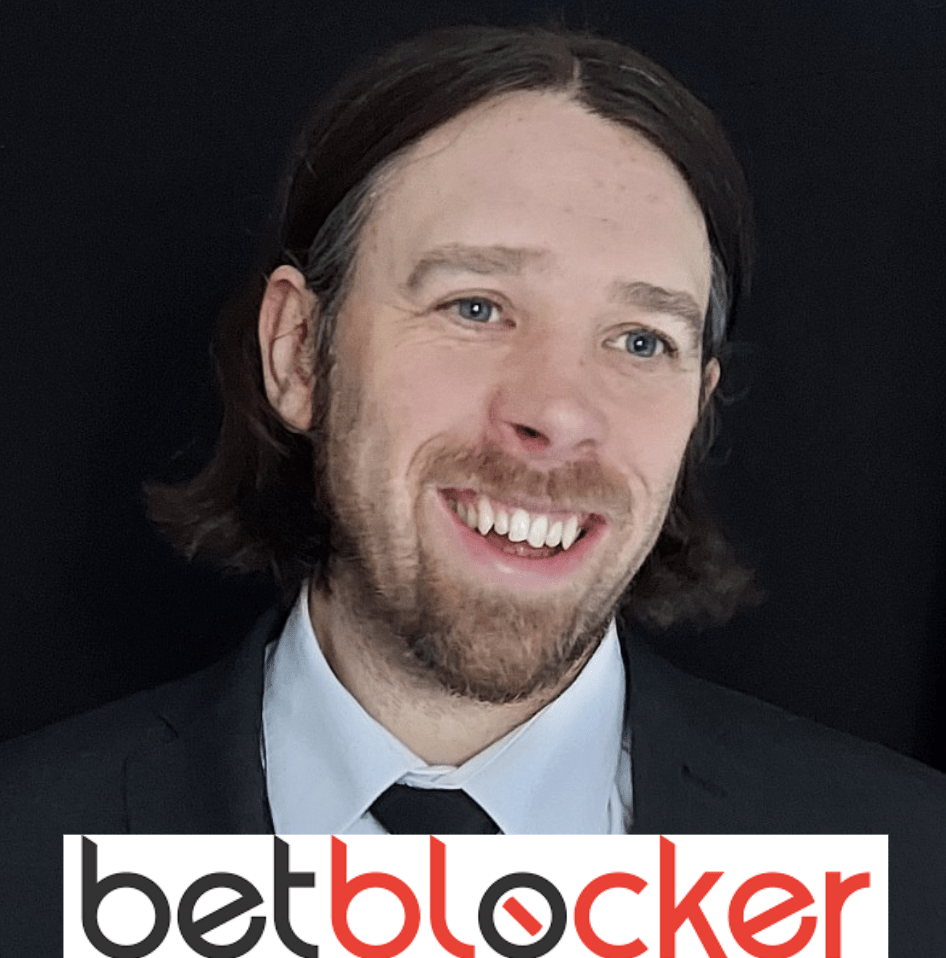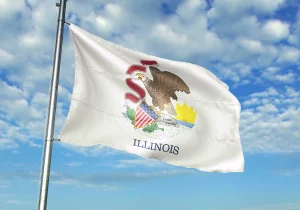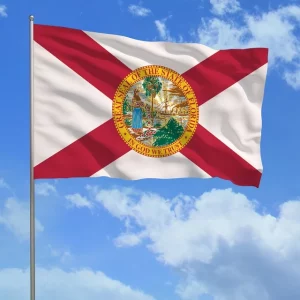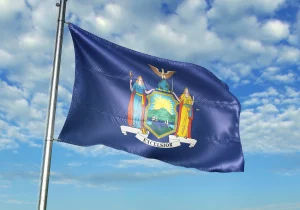Casino Cabbie: What is the importance of website blocking software for vulnerable gamblers, and why is BetBlocker the best choice?
Duncan Garvie: Modern technology has changed the world and how people interact with it. In the past if you wanted to gamble, you had to physically go somewhere. A casino, a betting shop, a poker room. You couldn’t engage instantaneously.
With the invention of the internet and the smartphone, we’ve opened Pandora’s Box. Everyone is now walking around with a casino, sportsbook, bingo room, or poker room in their pockets all of the time. Just a few clicks, and you can be gambling. Seconds away. The human brain isn’t evolved to deal with that level of access to an addictive activity.
Blocking software, while far from a magic bullet, offers a way to put a block between your phone or laptop and accessing online gambling services. It’s the first step in a longer journey to recovery.
BetBlocker is unique amongst blocking software because we run as a charity rather than a business. We give our app for free to anyone, anywhere. We chose to offer the service free of charge because I feel that price barriers between vulnerable players and support only guarantee that the most vulnerable are the least likely to be able to access help.
One of the primary markers of harm for anyone impacted by gambling harms is financial distress. When someone is already struggling to get by, asking that person to pay for help exacerbates one of the markers of harm. Offering the service free of charge ensures that everyone can access help.
CC: What was your inspiration/reason for starting BetBlocker?
DG: I’ve spent over a decade mediating disputes between players and online gambling operators. During that time, we’ve seen steadily rising volumes of complaints related to gambling addiction. This is normal and natural. More and more markets are regulating, and this results in more players being aware of their rights.
I’ve managed many very distressing claims, and unfortunately, it is not always possible to recover money for the player. So we started to look for other forms of support we could signpost. My first thought was blocking software, but when we reviewed the options available and realized they were all subscriptions, we were uncomfortable directing people who were in serious financial difficulty to services they were required to pay for. So, we set up our own service with the goal of giving it away for free.
A couple of years later, BetBlocker had become so popular that the business couldn’t continue to sustain it. Rather than starting to charge for the service, we broke it off from the business and registered it as a charity in its own right. We’ve run BetBlocker as a charity ever since.
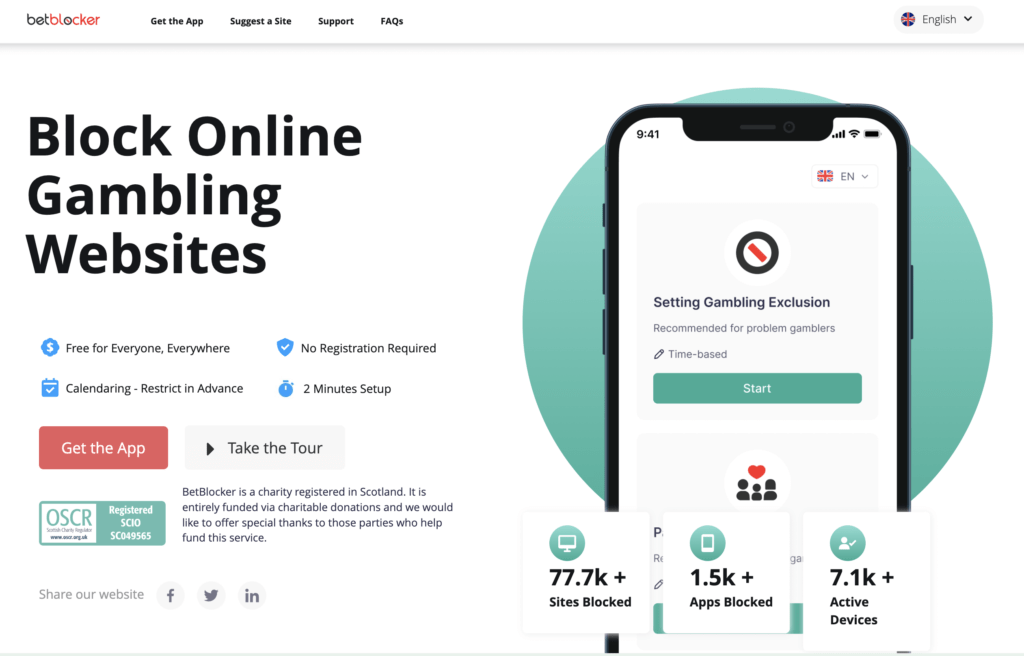
CC: Are third-party tools like BetBlocker still needed in regulated markets where operators must provide RG tools to players?
DG: Absolutely.
RG tools offered by operators only impact play with that operator/group. Gambling addiction isn’t site-specific, and if you can’t play on one site, the chances of you trying to find another place to play are high.
Likewise, with regulatory exclusion schemes, when players sign up for the country or statewide self-exclusion program, these exclusions only impact the operators that participate in the program. The black market operators, who are accepting players illegally, are still accessible and, worse, often explicitly try to target vulnerable players with their marketing.
Blocking software like BetBlocker blocks all operators at once and can block both licensed and unlicensed operators.
CC: New casinos launch every month; how does BetBlocker keep up with what sites are listed as blocked?
DG: We have a variety of strategies to help us ensure that our block list stays up-to-date.
First and foremost, we have a crawling tool that automatically crawls the license pages of all the major regulatory authorities and automatically adds any new URLs to our restricted list.
We conduct manual checks on various sites that market online gambling on a weekly basis to ensure that we identify any new unlicensed operators.
But the most important strategy we have to identify new sites is our users. We have a ‘Suggest a Site’ feature within the app that allows users to submit any site they find that they can access to our team to be added to the restricted list. This means it only takes one person to identify a gap in our block list for it to be restricted to everyone.
In a strange way, BetBlocker is a community project, where all our users are helping each other. They don’t know each other and will never meet each other, but they all contribute to keeping each other safe.
CC: Can you explain the calendaring concept and its usefulness for all gamblers?
DG: Our Calendaring system is unique. No other blocking software offers anything similar.
Traditionally, blocking software is used as a response to a crisis. A player loses too much money, they’re panicking, and they put in place a block to prevent them going back to gambling. That’s great and a very necessary service, but it’s reactive. Looking to respond to a problem that’s already occurred.
The Calendaring system looks to approach the problem from the other side – harm minimization.
We allow users to schedule their block in advance. So, if you know that you’re prone to gambling a bit too much after a few drinks on a Friday or Saturday, you can set the block to activate on the weekend. Want to make sure you save money before a getaway? Set the block to activate a month before. Want to make sure you’re not distracted by gambling while your kids are on holiday? Schedule your block to the school calendar.
The truth is that we all know gambling is a risky and potentially addictive activity. Everyone who’s going to gamble should think about how to keep themselves safe before they play. You wouldn’t drive a car before you fasten your seatbelt. You wouldn’t go rock climbing without a harness and helmet. Before you play, think about when you’re vulnerable to overspending and put some restrictions in place!
CC: Do you have statistics you can share with us about how BetBlocker is helping gamblers?
DG: BetBlocker is an anonymous service. People can use the service without registering an account or ever telling us (or anyone) who they are. Because we want to ensure that people can use the service anonymously, the data we collect is very limited, beyond knowing roughly how many users we have at any given time (which is shown on our website).
CC: What’s your take on the rising number of problem gamblers in the USA and the state-by-state approach to responsible gambling funding, services, and regulation?
DG: As I discussed above, we opened Pandora’s Box with the invention of the internet and smartphones. Many great things have come from these technological advances. And there’s no going back. But one of the downsides that have come with these technologies has been a level of access to gambling that we as a species simply haven’t evolved to cope with.
For the majority of people, this change isn’t a bad thing. They can access a pastime that they enjoy more easily. But for those who are more vulnerable to addictive behaviors, this is a big problem. Many people who could not readily access gambling before can access gambling now. This naturally means that there will be an increase in the number of people experiencing problems.
In my experience, the funding structures in the US to support problem gambling are still woefully underdeveloped. Having interacted with many of the organizations that support problem gamblers across many states, I know so many of them are shoestring organizations fighting to get by with minimal funding. This impacts the support that they can offer. It needs to change.
Whether the funding is improved in-state, one at a time, or a national approach is taken to oversee adequate support provision for all Americans matters less than ensuring that more support is made available.
CC: You sold your long-standing affiliate website, ThePOGG, to focus entirely on BetBlocker; how has this decision worked out for you?
DG: That’s partially true. While it is true that I sold ThePOGG in 2023, part of that deal included taking up employment for the new owners, Blexr, as Head of Alternative Dispute Resolution (ADR) Services. Effectively I’m responsible for building and managing their new complaint management department. So, my focus isn’t entirely on BetBlocker.
I’m the founder and remain one of the Trustees for BetBlocker. I’m deeply involved in every decision for the organization. But all the work I do for BetBlocker – attending conferences, speaking engagements, building relationships with regulators, operators, and other third-sector organizations, fundraising, social media, and developing and coordinating the technical development of the service – is done on a voluntary basis.
I believe very strongly in the objectives of BetBlocker and that anyone who is struggling with gambling addiction should have free access to this sort of support. Which is why I volunteer so much of my time.
The sale of my business has, however, allowed me to dedicate more time to BetBlocker, which has been absolutely fantastic. We’ve now got an incredible team in place and finished 2023 in a far stronger position than we started it.
CC: What do you foresee as the biggest challenges for the gambling industry in the next five years?
DG: I’m obviously going to focus on safer gambling in my answer to this question. The US gambling market is oddly immature. The UIGEA Act of 2006 didn’t actually stop online gambling in the US. It simply created a black market of operators who were prepared to work to ignore and bypass the law. One of the consequences of the UIGEA Act was that the development of policies and agencies to regulate online gambling in the US was stalled significantly.
Slowly but steadily, the states seem to be choosing to regulate online gambling. And these states have to set up bodies to regulate the industry. Often, they’re relying on the bodies that regulate the offline industry, forcing these organizations to engage in a very steep learning curve. They’re still working out many of the nuances of the industry.
One of the most substantial areas that these new regulators need to focus on is responsible gambling. Many are offering state-wide self-exclusion programs, which are a great idea, but they require players to travel to an office, or often a casino, to have a face-to-face meeting with someone, provide ID, and sign documentation to register. Even setting aside the contrary nature of having to go into a gambling business to exclude from gambling, with so many points of friction between a player and self-exclusion, the uptake in these schemes will be very low.
I’d like to see regulators across the board making it easier for players to access and engage with self-exclusion programs.
The Roundup
It was an absolute pleasure to sit down with Duncan and pick his brain on all things safer gambling and Betblocker-related.
One of the many important things this interview highlighted is that gambling-blocking software is not just a crisis tool. It can also be a preventative strategy for gamblers, especially when using features such as Betblocker’s calendaring.
If you’ve not yet checked out Betblocker, it’s our top recommended tool of this type, and because it is 100% free and anonymous, it’s instrumental in removing barriers for players in accessing help - we’re big fans!

